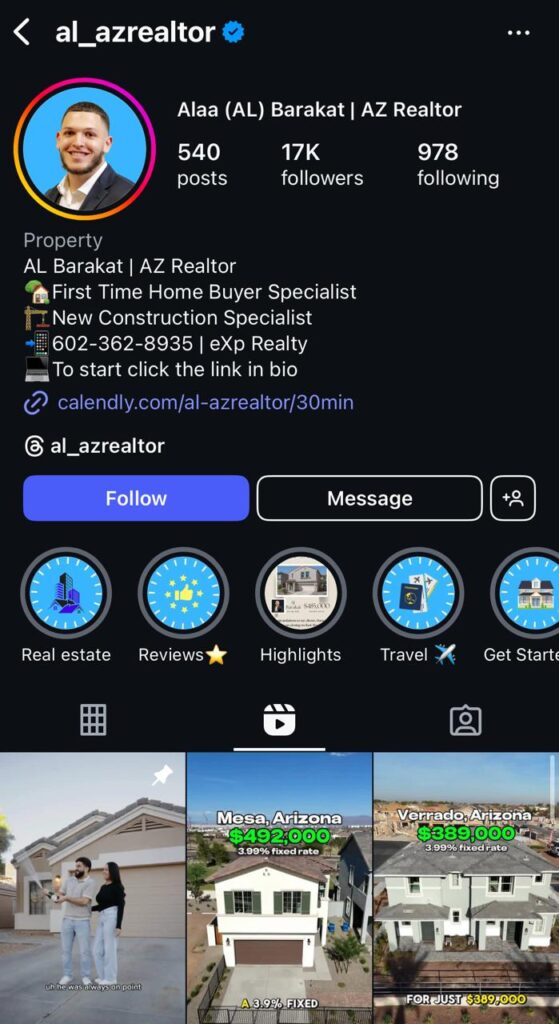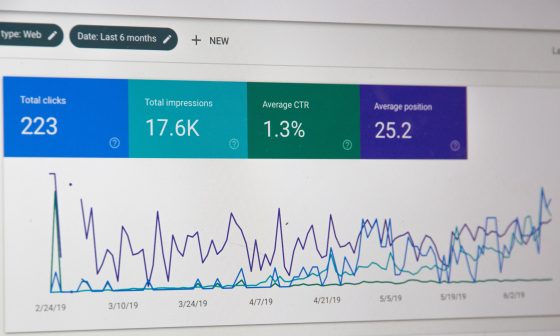
Source: Unsplash
Every buying decision begins with a Google search. That’s how evolved today’s world of sales is. From pizza joints to physio clinics, your reputation shows up before you do. It’s precisely why reputation management services have become one of the most in-demand solutions for local and multi-location businesses.
According to a Forbes study, 98% of consumers read online reviews for local businesses. Even more telling, 49% trust them as much as personal recommendations. That’s real influence, directly tied to real revenue.
As digital trust becomes a currency, the opportunity to sell reputation management software and services has never been more profitable. Whether you’re an agency, consultant, or SaaS reseller, here’s a breakdown of the most profitable industries to sell your reputation management services.
TL;DR: Profitable Industries to Sell Reputation Management Services
- Online reputation has an immediate impact on customer trust, conversions, and long-term revenue.
- Healthcare, hospitality, automotive, professional services, insurance, and home services offer strong demand.
- Businesses want help managing listings, monitoring reviews, and building trust across platforms.
- Most agencies charge between $500 to $2,500/month, depending on service level and location count.
Why Reputation Management is a Lucrative Market
Reputation shapes trust, and trust drives conversions. When people don’t trust a brand, they bounce. And when there is trust, they click, visit, and make a booking. That’s the business case for reputation management services in a nutshell. There’s hard data behind the shift.
- 94% of consumers say a negative review has made them avoid a business altogether
- A study found that a one-star increase on Yelp can lead to a 5 to 9% revenue bump.
These are proof that online reputation has become a key revenue lever.
Consumers are comparing
People don’t just search for “best dentist near me.” They compare star ratings, read comments, check business photos, and even scan how the business responds to complaints.
That means every detail, from review scores to how quickly a business responds, can influence decisions. And because most small or multi-location businesses don’t have time to stay on top of this stuff daily, they want help. That’s a massive opening for marketers and agencies.
Reputation management turns messy feedback loops into structured, automated processes. It turns negative experiences into second chances, and it puts control back in the hands of the business owner.
Social proof is now important
Once upon a time, reputation came from word of mouth and personal referrals. Today, it comes from reviews on Google, Facebook, TripAdvisor, Healthgrades, you name it.
So when you manage a brand’s reputation, you’re not just improving optics. You’re influencing decisions, increasing leads, and improving how often a business gets found.
As online reviews surge, more brands are seeking guidance on how to manage them effectively. If you spot a business slipping in rankings or struggling with its online presence, it’s your cue to step in. Here’s an idea from an agency pro like you.:
Extra revenue for agencies
Here’s the part that’s hard to ignore: selling reputation management services is helpful and profitable.
Marketing agencies offering this as a standalone or add-on service typically charge anywhere from $500 to $2,500 per month per client. That can vary depending on:
- Number of business locations that client has
- Platforms monitored (Google, Yelp, Facebook, industry-specific directories)
- Scope of services (review generation, listing accuracy, sentiment tracking, response management)
- Frequency of reporting and consultations
And because it’s recurring, predictable work with high margins, it’s a strong addition to any agency’s monthly revenue mix.
Better still, platforms like Synup make it easy to scale by automating the grunt work, so agencies can serve 10 clients or 100 without doubling their team.
Next, we’ll see the exact types of industries where this service sells best, with real-world reasons why. Let’s start with one of the most reputation-sensitive spaces out there.
Industry #1: Healthcare
When you’re choosing a hospital, clinic, doctor, surgeon, or even a dentist, reputation is the first thing you check; that is, PR, customer reviews, and what comes up when you search the name.
People won’t trust a provider with one star, even if they’ve got two degrees and a stethoscope straight from Harvard. In this industry, a single bad review or negative customer experience can send patients running or, worse, spark legal headaches.
We’re not just talking about hospitals. This includes individual practitioners, specialists, dental clinics, telehealth services, chiropractors, and even urgent care centers.
Why reviews are important in healthcare
Studies show that 72% of patients read reviews before booking a new healthcare provider. That’s the frontline of patient acquisition.
One negative review about rude front desk staff, misdiagnosis or a patient fatality due to negligence could tank patient bookings for weeks and months..
How big is the healthcare rep management market?
While exact spending data can vary, U.S. healthcare marketing budgets are estimated to be $30 billion annually, and a significant portion of it is going to digital, including online reputation management (ORM).
Small clinics and multi-location practices are especially active in this space. They need to stay ahead of local competition and appear trustworthy to the modern patient, who often googles everything before walking in.
Selling strategies that land
- Start with local SEO + reputation bundles. Most clinics want to appear on Google Maps quickly.
- Highlight patient trust and compliance benefits. A strong review profile builds credibility and lowers patient churn.
- Focus on specialist clinics: dermatology, pediatrics, and mental health are booming, and often underserved digitally.
- Mention review response automation. No one in a scrubs-filled office has time to manually reply to every review.
Take Spring Creek Dentistry in Houston, Texas. They have a 4.9 average on Google off a whopping 1,856 reviews.

It’s clear why they stand out. Their Google Profile highlights everything from appointment links to services. They even include high-quality pictures, helpful Q&As, and take the time to respond to reviews with personalized, thoughtful responses:

Even the negative ones:

Now that’s good local reputation management.
Where to find clients
- LinkedIn groups for private practice owners
- Local Chamber of Commerce listings
- Facebook groups for private physicians
- At-home telehealth providers on Google Business
Industry #2: Hospitality & Travel
Reputation in this industry is everything. A four-star hotel can lose out to a three-star lodge with better reviews.
People book based on photos and what strangers say on Yelp, not on star ratings alone.
Why reviews are critical here
Over 90% of travelers check reviews before booking hotels, tours, or restaurants. In hospitality, reputation is revenue—one bad TripAdvisor review can cost thousands.
Try this: Google “hotel in [your city].” Chances are, the top listings all have great reviews, plenty of photos, and accurate details. That’s reputation management at work.

In this industry, reviews are everything. One-star complaints about stained sheets or noisy neighbors can lead to cancellations. That’s how delicate the experience economy is.
It’s not just the big hotel chains, either. Boutique stays, eco-lodges, short-term rentals, and even shuttle operators rely on positive reviews to survive.
Stronger ratings mean more bookings. And when your margins depend on occupancy and guest satisfaction, that makes all the difference.
How large is this market?
The global hospitality and travel tech market is expected to exceed $1.1 trillion by 2029, and reputation management plays a growing role. Smaller players are investing more in review generation tools, local SEO, and brand sentiment analysis to stay competitive.
What can you charge?
Depending on the location count and listing complexity, agencies charge $500 to $2,500 per month, especially when bundled with review generation tools or customer sentiment tracking.
How to sell it?
- Talk about booking decisions and guest expectations. “You never get a second chance at a first review.”
- Focus on consistency across Google, Yelp, TripAdvisor, Airbnb, and Expedia listings.
- Highlight impact on revenue per available room (RevPAR).
- Offer guest follow-up flows via email or text to encourage post-stay reviews.
- Pitch review replies in the brand’s tone of voice. Travelers love it when businesses respond to reviews, especially the bad ones.
- Offer competitor benchmarking. Hotel owners want to know how they stack up against the property across the street.
Where to look
- Focus on independently owned lodges
- Target Airbnb hosts with 10 or more listings
- Look for small group travel agencies
- Prioritize those with strong Instagram content but:
- Inconsistent Google reviews
- Poorly managed online reputation
Industry #3: Automotive
Buying a car is a big deal, and you better believe shoppers are doing their homework. Before test drives even happen, people are looking up dealerships, comparing ratings, reading about pricing honesty, and checking service reviews.
This goes beyond dealerships. It includes auto repair shops, tire centers, car wash chains, and even vehicle wrapping businesses.
In this industry, reputation equals reassurance. A bad review about poor service or surprise costs can scare off dozens of leads. After all, a car and its related services mean a major investment.
Service value
Agencies and consultants offering reputation management services in this space regularly earn between $700 and $1,800 per month per location, depending on the number of locations, lead volume, and the level of reputation damage to be controlled.
How to sell
- Focus on customer lifetime value. “A single review could cost you ten future referrals.”
- Offer multi-platform monitoring; Google, Cars.com, Facebook, and niche auto sites.
- Set up alerts for negative reviews and fast response workflows.
- Build review generation into post-sale checklists or service reminders.
Here’s an example of a local business that’s optimizing its automotive services, specifically car wrapping and window tinting:

Here’s a response that stands out. It’s clear to see why:

Where to find clients
- Local dealership listings
- Service center directories
- Partnerships with ad agencies
Industry #4: Professional Services (Legal, Financial, Consulting)
In the professional service industry, you’re not only managing a brand, but managing credibility. When someone looks for a tax advisor, estate planner, or lawyer, they want to know two things: can I trust them, and will they do the right thing by me?
That’s what reputation management answers.
For many of these professionals, a single bad review can carry significant weight, especially if it hints at negligence, incompetence, or hidden fees.
The issue is most professionals are too busy (or too wary) to manage their online reputation. They fear saying the wrong thing, or simply don’t know where to start. That’s where you walk in.
How to sell it
- Highlight reputation as your brand’s résumé. “Before clients call, they research. We make sure they like what they see.”
- Provide custom responses to client reviews that comply with regulations.
- Keep listings accurate and clean, especially since trust is everything.
- Offer sentiment monitoring and alerts for keyword flags (like “fraud,” “late,” or “fees”).
Here’s a well-managed local law firm’s Instagram that lays everything out for prospective clients:

Where to find clients
- Chamber of commerce directories
- LinkedIn local searches
- Relevant industry events
Industry #5: Home Services
Plumbers, electricians, roofers, HVAC technicians, cleaners, and more: folks in the home services industry rely almost entirely on local trust and word of mouth. Today, that “word-of-mouth” mostly lives on Google and Yelp.
One no-show or bad customer experience can tank their pipeline for a long time. Because when people are booking someone to come into their home, reviews are essential.
How to sell it
- Talk about booking volume and local SEO rankings.
- Set up a Google review generation system via a text post-job.
- Use before-and-after photo galleries to boost perception.
- Offer templated replies to both praise and complaints.

Where to find clients
Look for businesses advertising on Facebook or Google. Chances are, they need help turning that traffic into trust.
Industry #6: Insurance Providers
Insurance buyers are skeptical (always have been and always will be).
They want peace of mind, not just in the policy, but in the person selling it. That’s why online reviews for insurance providers are essential. They’re the first impression, and in insurance, first impressions convert or cost you.
Whether it’s auto, health, or life insurance, people Google agents before making a call. A few negative reviews with no replies feel like a red flag.
Here’s where the opportunity lies:
Most local agents and brokers still don’t have a structured reputation management system. They rely on word of mouth and hope their Google star rating holds up. No review request workflows. No listings accuracy check. No issue resolution pipeline.
That’s where you help them.
What you can offer
- Automated review generation post-policy sign-up or claim resolution
- Sentiment tracking to identify repeat service issues early
- Listings management across Google, Facebook, Bing, and insurance directories
- Review response templates tailored for high-stakes financial services
Where to find clients
- Look for independent brokers with multiple offices, especially those working under a known franchise.
- Commercial and health insurance agents who offer corporate packages.
Industry #7: Retail
Inconsistency kills in the retail world, especially for multi-location stores.
If one store has rude staff, the bad review hurts all other branches. One checkout error goes viral on Facebook, and it affects brand trust instantly.
Consumers trust reviews before they trust your store. That includes local clothing shops, furniture showrooms, or multi-branch electronics retailers.
But most retailers still treat reviews like they’re outside their control. No process to generate positive feedback, no alert system for review bombs, and no internal SOP for managing reputation crises.
What you can offer
- Branch-level review reporting, so they can see which store is underperforming
- Review generation via POS systems or post-purchase SMS
- Automated responses based on keyword triggers (like “rude staff” or “faulty item”)
- Google Business Profile optimization for each physical location
Where to look
- Target regional chains with 3 to 30 stores.
- Look for those who are actively running ads but have inconsistent online reviews. If they don’t even have individual listings for each branch, that’s a jackpot. You can pitch reputation score tracking, local SEO, and multi-location listings clean-up all in one.
Industry #8: Fitness & Wellness
Nobody joins a gym with a 3.2-star rating. Not in 2025. Not anywhere you’ve got options.
Fitness businesses, such as personal trainers, boxing studios, wellness spas, and small chains, get hit hard by negative sentiment. Sometimes it’s justified. Often, it’s exaggerated. Either way, reputation lingers online, and people judge fast.
Most of these businesses don’t have a review funnel in place. They don’t monitor sentiment across platforms. They might even ignore Google entirely and focus only on Instagram, which means they’re flying blind. Help them build a reputation ecosystem that drives referrals and repeat bookings.
What you can offer
- In-session review prompts via fitness apps or tablets at the front desk
- Multi-platform review monitoring across Google, Mindbody, ClassPass, and Facebook
- Bad review escalation system with templated response flows
- Reputation score benchmarking to show how they compare against similar local studios.
Where to look
- Boutique fitness chains
- Personal training studios with multiple trainers
- Wellness spas with multiple services
Industry #9: Beauty & Personal Care
No one risks a facial or a fresh cut without checking reviews first.
That one review about “bad lashes” or “bruised skin from facial extractions” can haunt a salon for months.
Whether it’s hair salons, brow bars, med spas, or nail studios, trust is everything. But most beauty business owners are focused on glam, not Google. They don’t track reviews, don’t reply, and don’t know what clients are saying on Yelp until bookings dry up.
What you can offer
- QR code review prompts on the counter or mirror
- Social proof widgets showing top-rated stylists on their website
- Automated review alerts and sentiment flagging (“aggressive waxing” pops up? They know ASAP)
- Stylist-specific reputation profiles for internal tracking and bonuses
Where to look
Focus on multi-service salons, mobile glam teams, or med spas expanding into second locations. These teams usually don’t have a digital strategy beyond social media. A well-positioned reputation management service can turn their feedback into their most powerful marketing tool.
Industry #10: Real Estate Agencies
This one’s a no-brainer. Property buyers Google agent reviews just like they check prices.
The distinction between closing a sale and losing a lead is often a 4.2-star rating vs. a 4.7-star rating on the agent’s profile.
Real estate agents, property managers, and leasing officers all live on referrals. And now those referrals are public. Google, RateMyAgent, and Facebook are where people look for trust signals.
The challenge is that most agencies have zero process to manage this. Agents use their own emails. Reviews get scattered. Bad reviews sit for months without a response.
What you can offer
- Agent-specific review profiles integrated with Google and RateMyAgent
- Review funnel for every open home, inspection, or closing
- Listings and NAP audit across all brokerage locations
- Crisis response SOPs for negative reviews involving legal or conflict-sensitive complaints
Here’s an example of an idea that brings in loads of engagement:

Realtor home walkthroughs and a breakdown of property listings (even targeted for first-time buyers).
Where to find them
Target real estate brands with 5+ agents, or those with multiple offices but a shared Google Business Profile. They likely need agent-level reputation control and tools to consolidate client feedback into measurable trust signals. Bonus points if they’re active on social but ignore reviews; they’ll see instant ROI when their visibility jumps.
Summing Up
Selling reputation management services is smart. It’s where the money is. Today’s sales world is review-driven. A business’s online presence is the filter through which customers make decisions. In industries like healthcare, hospitality, automotive, insurance, and professional services, a single bad review or a neglected Google listing can result in real, measurable losses.
What makes this market especially attractive is that these aren’t one-off projects. Businesses need ongoing help to collect reviews, fix listings, track sentiment, and stay visible. That means recurring revenue, long-term relationships, and high retention, if you do it right.
With Synup, you get the tools to do it right. We’ve got the tools to help you manage every moving part of a business’s reputation, from local search presence to review monitoring and everything in between.
Most Profitable Industries to Sell Reputation Management Services: FAQs
How much do reputation management services cost?
In most cases, pricing ranges from $500 to $2,500 per month per location. Small businesses might need simple listing management and review monitoring. Multi-location businesses may want automated review generation, detailed sentiment analysis, and competitor benchmarking. If you’re offering industry-specific or bundled services (like combining reputation management with local SEO or social media), you can raise that price even more.
How do I choose a reputation management company?
Start by asking one simple question: Do they actually understand your business? Here’s what to look for:
- Platform coverage: They should monitor more than just Google, but also Facebook, Yelp, TripAdvisor, and vertical-specific platforms.
- Response strategy: Do they offer templates? Do they write custom replies? Can they guide you through tricky reviews?
- Listing accuracy: Can they keep your NAP (name, address, phone) consistent across all directories?
- Transparency: You should know exactly what’s being done, what’s automated, and what’s not.
Industry fit: Are they equipped to handle regulated industries, such as law or healthcare?


